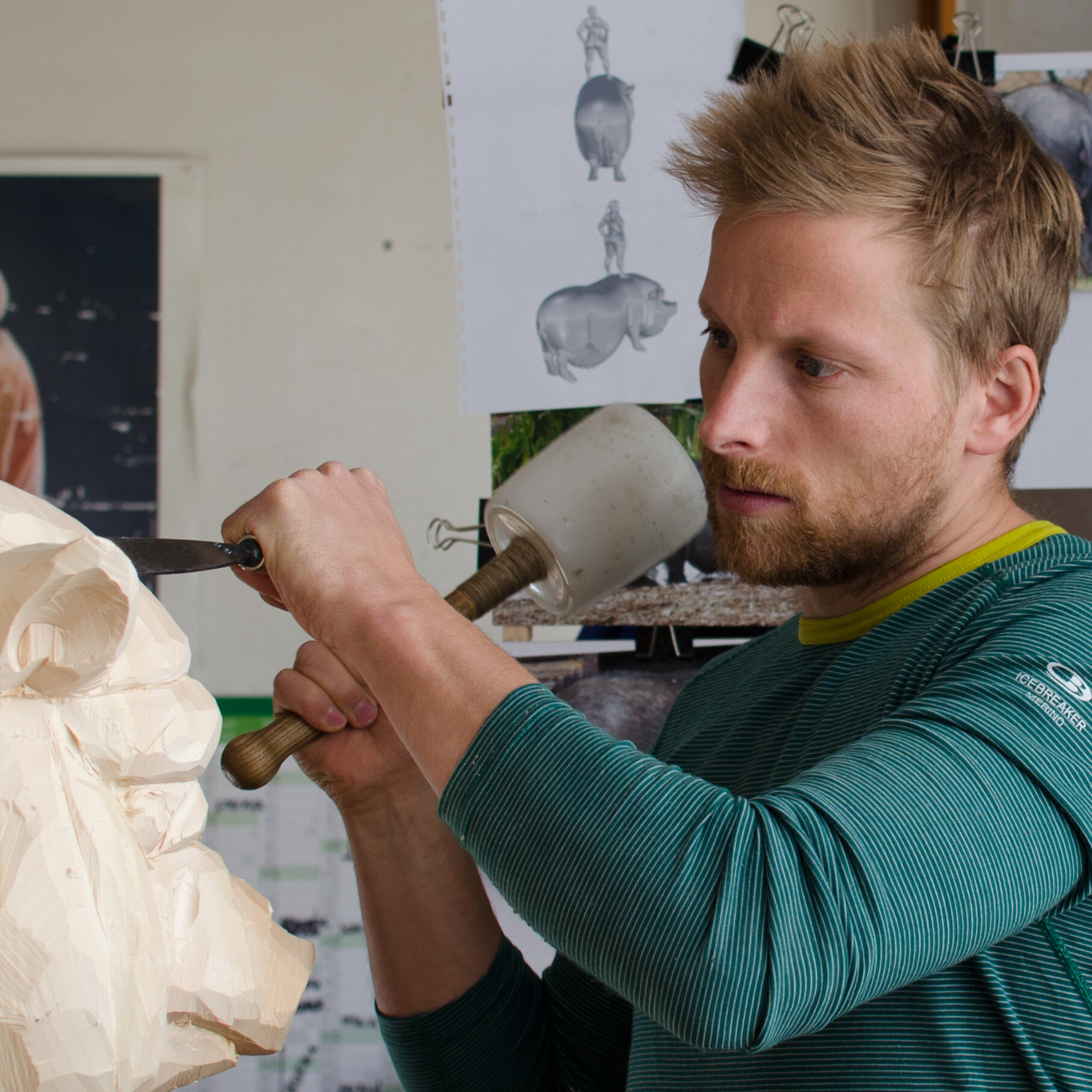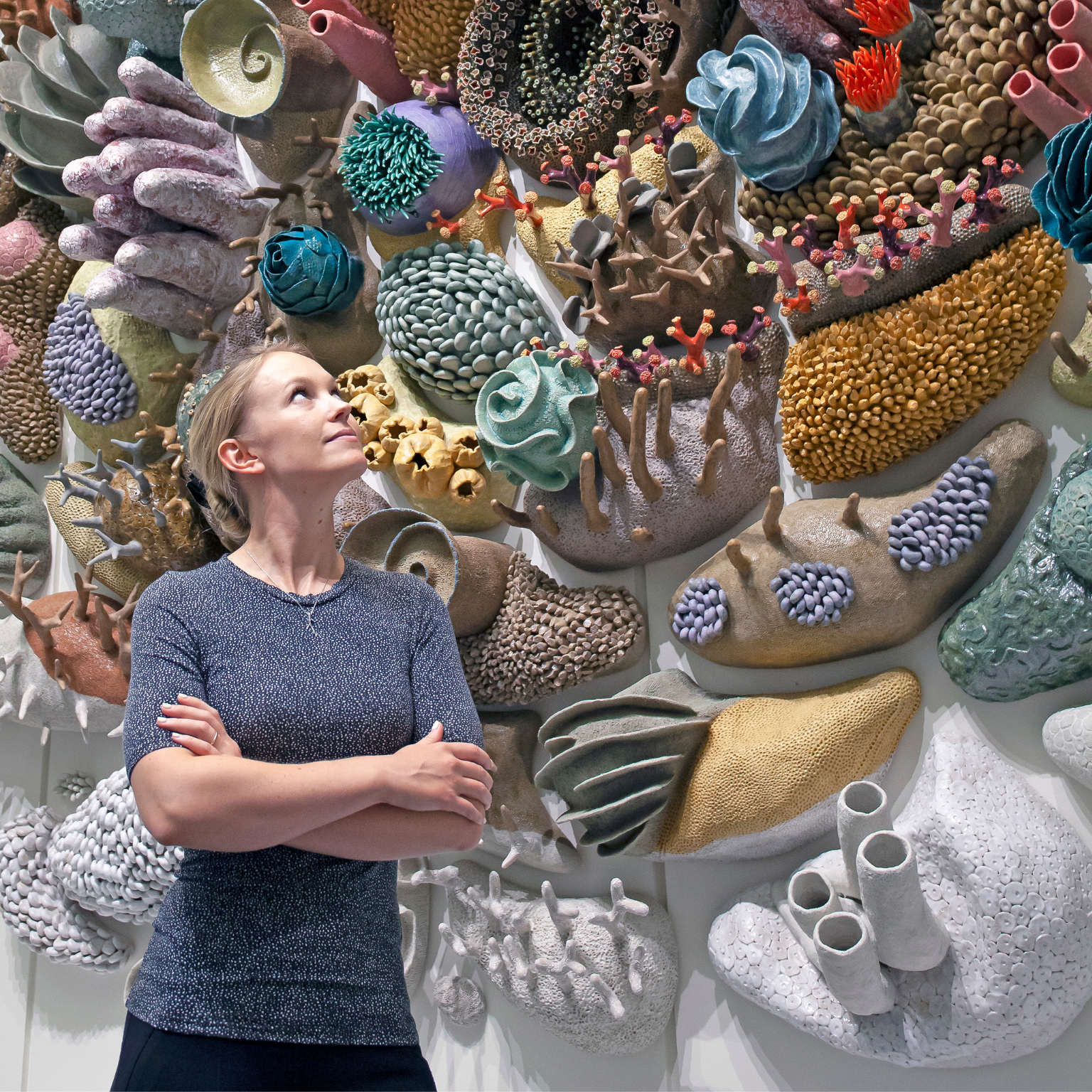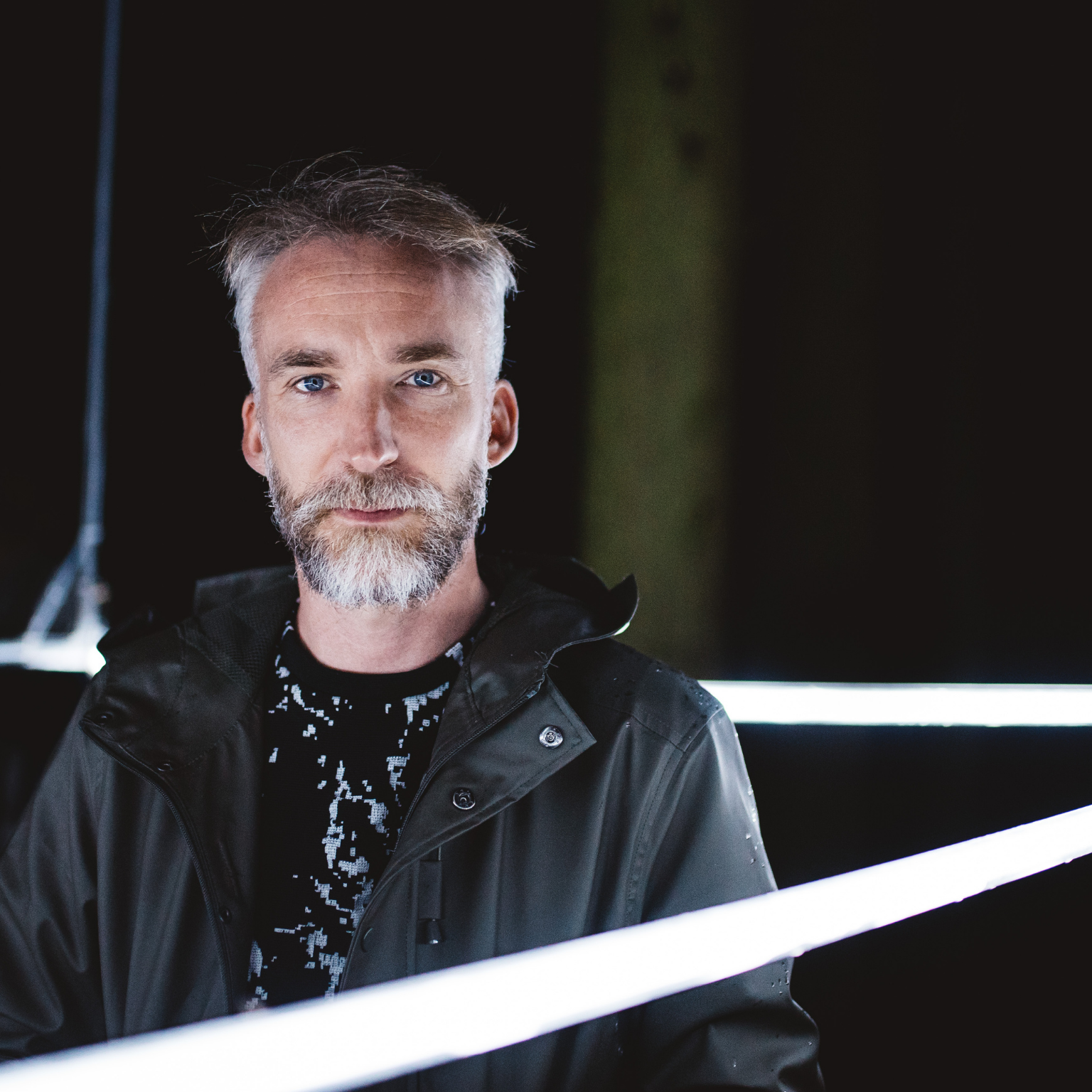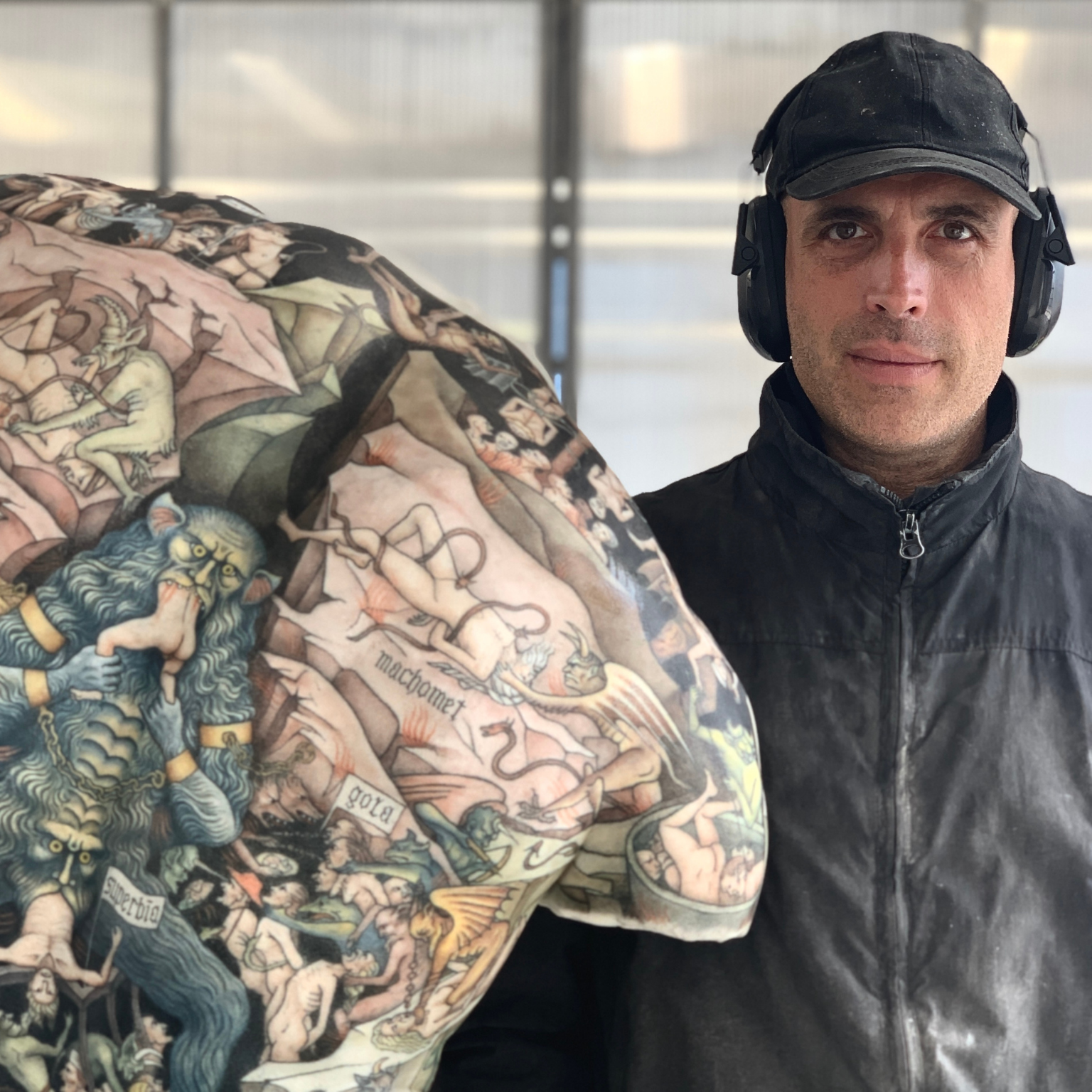Matthias Verginer, sculptor from Italy. Photography © VerginerMatt.com
1.In your opinion what is the role of a museum ?
The museum is still always an important institution. Preserves, educates and proposes current and new trends. In my opinion, the role is unchanged from the past to today, only that it has the possibility of doing it with more modern and interactive methods.
2.What are your favorite museum in the world? Why?
My favorite museums are those that offer contemporary art. I enter it curious and I am fascinated. They open my eyes and give me courage.
3.How important are social networks in your business? And which platform do you prefer and why.
I prefer Instagram because it is based on the image and therefore it is also very good for my business. It is simple, immediate and with little effort you can reach many people.
The decline in interest in visiting classic sites and taking advantage of social media is a trend that I have noticed in recent years.
4.In particular, due to the coronavirus emergency, how have you changed your business on social networks?
I haven’t changed my business, but I was perhaps more active and present.
5.To create greater engagement among museums, artists and professionals, do you have any advice for cultural projects such as #MuseumWeek?
It is always difficult to give advice to those who have a broader view of culture than I myself. We need a wider cultural diffusion and be more visible to a wider audience.
I hope more support from museums for young and emerging artists. I think #MuseumWeek is doing a good job of it.
Interview by Fabio Pariante, journalist
MORE
Matthias Verginer on social networks: Instagram
Matthias Verginer (Bressanone, 1982) is an Italian sculptor from South Tyrol. He studied advertising graphics and sculpture at School of Arts, and was trained in his father Willy Verginer’s atelier.
Since 2004 he has participated in many fairs, personal and collective exhibitions in Italy and abroad. Verigner’s works are surrealist, wooden sculptures are rigorously the result of the artist’s imagination that associates animals and human beings in an ironic key that reflect on the dynamic perceptions of society.
The artist lives and works in Ortisei, near Bolzano.



